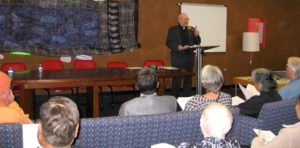 Photos of event, please see here
Photos of event, please see here
“Pope Francis and the Care for Creation
in the South Asian context”
Lecture by Fr. Thomas Massaro, S.J.
Dean of the Jesuit School of Theology (JST)
Newman Hall, Berkeley, California, was the venue for a standing room only lecture on Pope Francis’ landmark encyclical, Laudato Si’ by Rev. Dr. Thomas Massaro, S. J. whose life’s work has been teaching moral theology and involving himself in social justice causes in Boston and California.
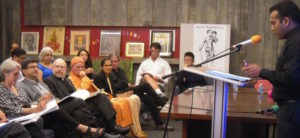
The mostly Indian and Sri Lankan Catholic members of the Joseph Naik Vaz Institute invited Dr. Massaro to give this “Care for Creation” lecture to celebrate the one year anniversary of the publication of Laudato Si’ and also of the canonization by Pope Francis of the Indian-Sri Lankan Saint, St. Joseph Vaz (1651-1711), both in 2015.
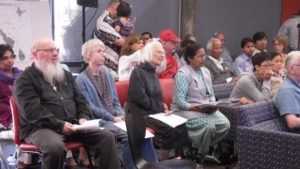
Appropriately, a South Asian context was created to show the relevance of Pope Francis’ message to India, Pakistan, Bangladesh, Nepal, Sri Lanka and other countries in that region suffering from ecological damage. GTU and JST doctoral student from India, Fr. Shantaraj Thomas S.J. showed a video of the pollution of the sacred river Ganges and other sites in the region due to industrial and human pollution and the climate change caused by the irreparable destruction of forests and biodiversity hotspots.
Fr. Massaro called Laudato Si’ the most important papal writing of all time. This is a “social encyclical” which is a universal teaching for “all people of goodwill” and which applies to all regions of the world.
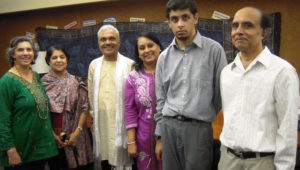
In Laudato Si’, Pope Francis begins by reviewing the state of our Common Home (planet Earth), the views of the Gospel about Creation, and the human roots of the present ecological crisis. The encyclical then gives some lines of approach and action including the need for ecological education and spirituality. Fr. Massaro then reviewed the development of Catholic teaching about “creation-centered” model in our dealings with the natural word.
Finally, Fr. Massaro called attention to three environmental teachings that Pope Francis emphasizes especially strongly in Laudato Si’. First, that we all have a solemn duty to respect the right of all people to clean drinking water. Second, that the preservation of biodiversity must be a strong social priority. And third, that all currently living humans have an ecological obligation both to future generations of humans and to all future living things, with whom we are called to live in solidarity.
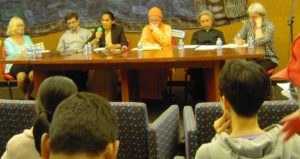
The lecture concluded with a discussion by an interfaith panel of S.F. Bay area religious leaders speaking about their different faith perspectives on Creation, Nature, and our responsibility toward them. They included representatives of the California Interfaith Power and Light, Vedanta Society of Northern California, the Islamic Cultural Center of Northern California, the Tibetan Buddhist lineage of Lama Norbu, and Sister Shalet Mendonca of the Bethany Sisters, India, a doctoral student at the Jesuit School of Theology, who spoke about her work in empowering women religious to respond to Laudato Si’.
Fr. Massaro has now taken a sabbatical to write a new book on the social teachings of Pope Francis.
September 3, 2016
The Joseph Naik Vaz Institute, California
http://www.josephnaikvaz.org/
